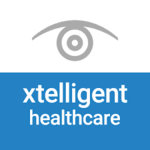All Research Sponsored By:XtelligentMedia Healthcare

-
How doctors can create patient trust through the use of generative AI
Providers and community health partners might be instrumental in building patient trust in generative AI and encouraging use.
-
Top IT challenges for healthcare organizations in rural areas
Rural healthcare providers have long faced challenges surrounding their geographical isolation and limited financial resources. However, the digital health transformation has ushered in a new set of rural health IT challenges.
-
Hospitals have a strong month as volumes return to normal
New data from Kaufman Hall show a return to normal care patterns, resulting in a relatively strong April for hospital financial performance.
-
Synthetic tumor data enhances training for cancer detection AI
An artificial intelligence model trained solely on synthetic liver tumor data performed on par with models trained using images of real tumors.
-
Balancing innovation, safety, compliance, and risk in life sciences
The life sciences sector is evolving rapidly, collaboration, compliance, and proactive risk management are key to patient safety.
-
Why insider threats in healthcare remain prevalent although security culture is improving
Verizon has seen a resurgence in healthcare security culture, despite declining insider threat breach rates. According to KnowBe4's Security Culture Report, suggesting that these gaps can increase cyber risk.
-
Payers Adopt Healthcare IT for Member Engagement and Cost Optimization
Payers expect to increase their spending on healthcare IT resources by 3 to 5 percent in the next two years.
-
Examining the FTC's noncompete prohibition and how it affects healthcare
The FTC recently prohibited noncompetes, a popular clause used in healthcare employment agreements, but legal challenges and clarifications are on the horizon.
-
What does implicit bias mean, and how does it impact medical care?
Healthcare leaders working toward health equity will need to recognize their own implicit biases to truly enhance patient care.
-
How HHS-OIG conducts cybersecurity audits
Healthcare organizations and HHS entities can use the recommendations provided in HHS-OIG cybersecurity audit reports to strengthen the security of their systems.
-
What to expect in the NSA's independent dispute resolution process
The No Surprises Act's independent dispute resolution process provides a channel for payers and providers to negotiate payments without affecting patient spending.
-
Investigating the use of generative AI in healthcare
As the hype around generative AI continues, healthcare stakeholders must balance the technology's promise and pitfalls.
-
New approaches to addressing how pregnancy tests affect the environment
The global plastic waste crisis, driven by excess single-use plastics like pregnancy tests, is a major concern; however, innovative options offer eco-friendly solutions.
-
Increasing mammography use to reduce the death rate from breast cancer
According to a CDC report, mammography utilization decreases with adverse social determinants of health.
-
3 ways to prepare for impending HIPAA Security Rule updates
Covered entities and business associates should prepare for changes as HHS plans to update the HIPAA Security Rule this spring.
-
Using Analytic Tools to Improve Wildfire Victim Care Coordination
Analytics-driven population health management strategies may help healthcare organizations tackle the persistent care challenges posed by wildfires.
-
How do Medicare Advantage providers create health plans tailored to a particular population?
Medicare Advantage insurers should prioritize data collection and provider collaboration when establishing population-specific health plans.
-
How Case Western is Giving Medical Students' Training in Epic EHR Priority
Case Western Reserve University School of Medicine is the first medical school to leverage Lyceum, an Epic EHR training platform designed for first-year medical students.
-
How Revenue Cycle Management Is Optimized by Robotic Process Automation
Robotic process automation (RPA) saves practices money and time by automating manual, repetitive tasks within revenue cycle management.
-
What do shared decision-making tools for patients mean?
Patient decision aids (PDAs) are key tools to help support patient education during the shared decision-making process.
-
Healthcare companies secure 50% more sensitive data compared to the global average
The volume of sensitive data that healthcare organizations maintain makes ransomware attacks against these entities even more impactful.
-
Handling the healthcare industry's black box AI discussion
How concerned should healthcare stakeholders be about the complexity and lack of transparency in black box artificial intelligence tools?
-
The CDC is looking into how microneedling facials can spread HIV.
An MMWR from the CDC identified individuals who contracted HIV through cosmetic needles after microneedling facials at a New Mexico spa.
-
How Massachusetts hospitals proceed with the goal of achieving health equity
Hospitals in Mass. are moving forward with health equity through an 1115 waiver, but the state's Hospital Association is looking long-term.
-
Payers' market consolidation is worse than health systems'
New data from AAMC shows that the largest health systems have a combined 43% of market share in each state versus 82% among the top three large-group insurers.